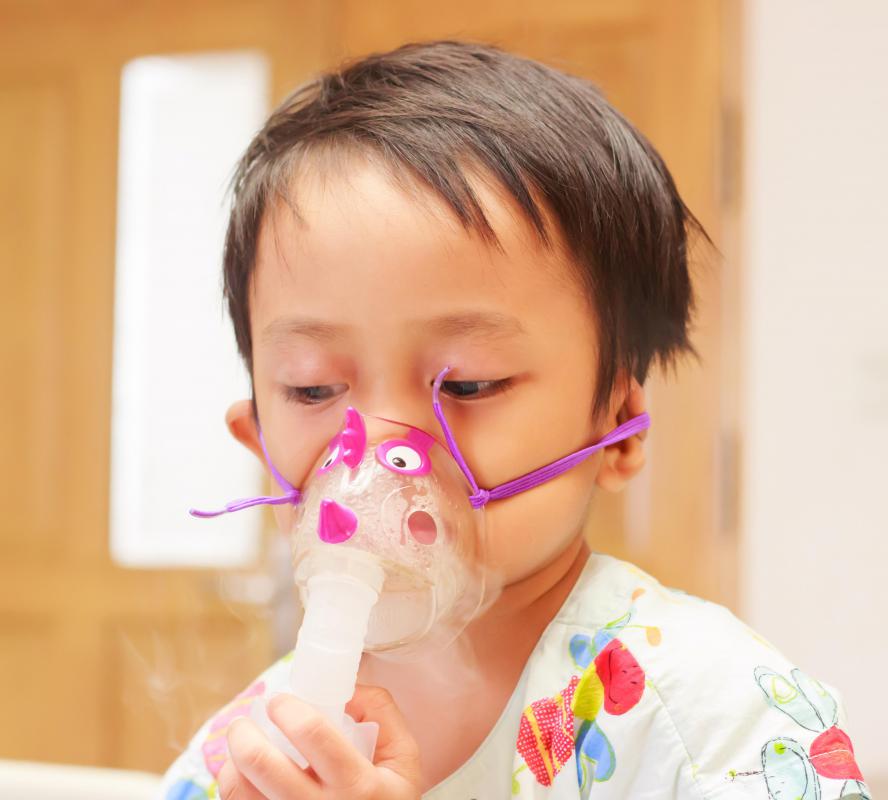At TheHealthBoard, we're committed to delivering accurate, trustworthy information. Our expert-authored content is rigorously fact-checked and sourced from credible authorities. Discover how we uphold the highest standards in providing you with reliable knowledge.
What Are the Symptoms of Recurring Pneumonia?
Recurring pneumonia is a serious health condition that involves chronic inflammation or infection in one or both lungs. There are three primary types of pneumonia: bacterial, viral and mycoplasmal. Symptoms can vary widely, depending on the type and seriousness of the infection. These symptoms can range from mild, flu-like symptoms to serious medical emergencies. Children who are less than 2 years old are especially susceptible to recurring pneumonia because of their undeveloped immune systems and propensity for aspirating food and liquids.
Bacterial pneumonia is caused by a bacterial infection. Bacteria are commonly present in the throat, but a weakened immunological response can allow the bacteria to spread into the lung’s air sacs. The sacs become filled with fluid and pus, making breathing difficult and reducing oxygen perfusion to the body. Common bacterial strains are streptococcus, hemophilos, legionella, staphylococcus and aureus. This type of pneumonia typically is treated with antibiotics.

Viral pneumonia is believed to be responsible for about half of all pneumonia cases. Common viruses include are influenza, chickenpox and measles. Other common viruses are adenovirus, coxsackievirus, cytomegalovirus and syncytial. Viral infections do not respond to antibiotics; rather, they are resolved over time. Associated symptoms typically are treated with common flu medications.

Mycoplasmal pneumonia, also known as walking pneumonia or atypical pneumonia, is caused by mycoplasma and chlamydia infections. The symptoms of this form of pneumonia can be much milder and are often mistaken for the simple flu. Mycoplasmal pneumonia typically is treated with antibiotics.
Symptoms associated with recurring bacterial pneumonia typically will present quickly. The symptoms associated with viral and mycoplasmal pneumonia can develop much more slowly. These symptoms also tend to be less obvious and less severe than bacterial forms. In some cases, individuals who have walking pneumonia might not even realize that they are sick.

Mild symptoms of recurring pneumonia often mirror those of the common cold. These symptoms can include fever or chills, headaches, muscle and body aches, shortness of breath and weakness. They also can include chest congestion, chest pain or tightness when coughing, nausea and vomiting. One important symptom is a wet cough that produces thick phlegm, typically white, yellow, green or brownish in color. As the infection worsens, this phlegm can contain blood.

One cause of recurring pneumonia occurs when a patient who believes that he or she simply has the flu resumes normal activities too soon. Patients might also discontinue their medications, believing that the infection has been eliminated. Both of these cases allow a persisting infection to re-strengthen and return. A common symptom of recurring viral and mycoplasmal pneumonia is a chest cold that repeatedly returns, never seeming to completely abate.

Serious symptoms of recurring pneumonia require immediate medical attention. The patient can experience cyanosis, altered states of consciousness, confusion, high fever and lethargy. Shortness of breath or rapid and labored breathing, a rapid pulse and a gurgling sound from the throat also are potentially serious symptoms. Pleural effusion, which is a condition in which fluid builds around the lungs; empyema, a condition in which pus forms in the pleural cavity; and hyponatremia, or low blood sodium, can also result from recurring pneumonia. In rare occasions, symptoms can also include an abscess in the lung.

The symptoms of recurring pneumonia are often a sign of a more serious, underlying medical condition. These problems can include chronic diseases, immunodeficiency disorders and lung cancer. Likewise, other chronic conditions can mask the symptoms of pneumonia, such as congestive heart failure, chronic obstructive pulmonary disease (COPD) and asthma. Contributing risk factors for recurring pneumonia include smoking, alcoholism and drugs that suppress the immune system, such as corticosteroids and chemotherapy.
AS FEATURED ON:
AS FEATURED ON:




















Discuss this Article
Post your comments